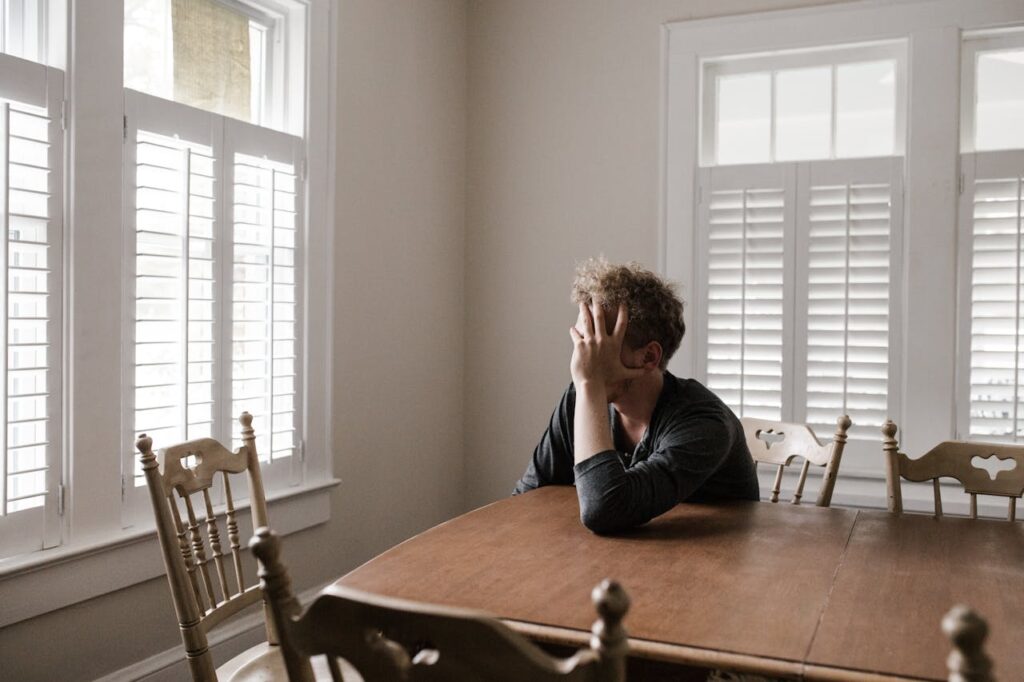Anxiety Symptoms and Signs In People

Anxiety is likely a word you have heard before, but how do you know if what you are experiencing is anxiety? Anxiety is a response that typically occurs when the body is under stress, in an unfamiliar situation, or in danger. Anyone can experience anxiety but not everyone has an anxiety disorder, so how do you know the difference?
Symptoms of Anxiety:
First, I will start by explaining the symptoms of an anxiety disorder. The most common disorder for anxiety is Generalized Anxiety Disorder. The symptoms of this disorder are the following:
- Restlessness, feeling on edge, or keyed up
- Easily fatigued
- Trouble concentrating
- Irritability
- Muscle tension
- Sleep disturbances (difficulty falling asleep, staying asleep, or having a restless sleep)
Per DSM-5 criteria, at least 3 of these symptoms would need to be present (for adults) for it to be Generalized Anxiety Disorder. But that is not all the criteria that would be needed. The symptoms would need to be present for at least 6 months, and symptoms would need to be causing distress and impairment.
Experiencing Anxiety:
That leads me to my question of how do you know if you are experiencing anxiety or have an anxiety disorder? Everyone can experience worry. The difference with an anxiety disorder is that it feels like the worry is uncontrollable. And sometimes the level of worry does not match the situation. Anxiety can range from mild to severe. It can be normal to feel nervous or experience anxiety when starting something new, being in a stressful situation, or in a situation where you do not feel safe. However, if the anxiety continues even after these situations have passed and have an impact on your daily life, then it may be an anxiety disorder. Some examples of other anxiety disorders are the following: Panic Disorder, Social Anxiety Disorder, Separation Anxiety Disorder, and Phobias.
It is important to note that there are some disorders that have similar symptoms of anxiety disorder but are different. Some common examples would be Post Traumatic Stress Disorder (PTSD), Acute Stress Disorder, and Obsessive Compulsive Disorder (OCD). PTSD and Acute Stress Disorders are both related to experiencing a traumatic event and symptoms will typically relate to the trauma experienced (such as flashbacks, nightmares, and re-living the event). People who struggle with OCD may experience worry but the key difference is they will have specific intrusive thoughts that follow compulsions (such as fearing getting sick and needing to wash hands excessively or a certain amount of times).
Diagnosis of Anxiety:
Why is it important to get a diagnosis? Shame is typically associated with anxiety. People may know they feel anxious but do not know why. With anxiety disorders, sometimes you may feel anxious but may not be in a dangerous or seemingly stressful situation. It can be invalidating to your experience when others do not seem anxious and you wonder why you cannot control the worry or stop feeling anxious. This is why it is important to understand that you may be struggling with an anxiety disorder that affects the ability to manage worry properly.
Managing Anxiety:
How do you learn to manage anxiety? I like to describe anxiety as an alarm system. It is warning you of possible danger to protect you, but it is going off at every possible danger. With anxiety disorders, it can sometimes feel like every situation is dangerous, and it becomes difficult to distinguish between danger, feeling uncomfortable, and uncertainty. If you are struggling with managing your anxiety, know that there are treatments that can help. The first step is confirming the diagnosis. The next step would be finding a professional who specializes in treating anxiety. Some common therapies would be Cognitive Behavioral Therapy, Acceptance and Commitment Therapy, and Mindfulness. These therapies can assist in reframing thought patterns, accepting thoughts and emotions, and feeling more grounded in the present.
If you are experiencing anxiety, book an appointment with a counselor at Symmetry Counseling today.

Recent Posts
From Self-Care to Stronger Relationships: How Mental Health Shapes Love, Parenting, and Connection
Love, family, and emotional well-being are deeply connected. Yet, in many cases, people invest their time, money, and energy in life’s big moments: the wedding, the birth of a child, or even the pursuit of love. They do so without…
How to Create Meaningful Connections and Protect Your Emotional Space
At social gatherings or in everyday life, many people feel pressure to connect, communicate, and be perceived as confident. Take a minute to think about what kind of person comes to mind when you think of someone who is great…
Understanding Envy and Emotions in the Digital Age: How to Reconnect with Yourself
Envy is one of humanity’s oldest emotions, yet today it shows up in new ways. The constant connection offered by smartphones and social media makes it easy to compare ourselves to others on a daily basis. This exposure can stir…
Do You Need Help?

Not what you were looking for?
